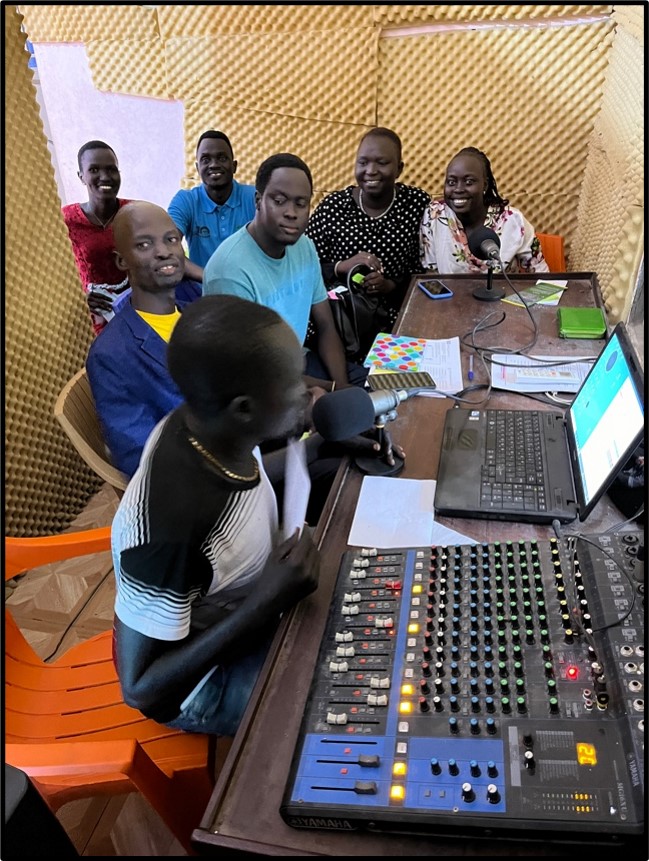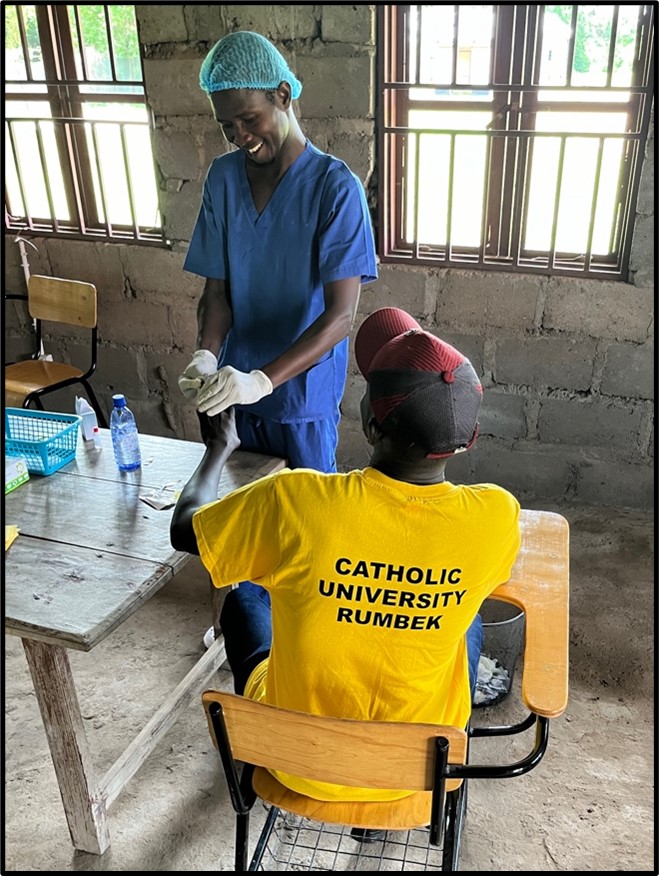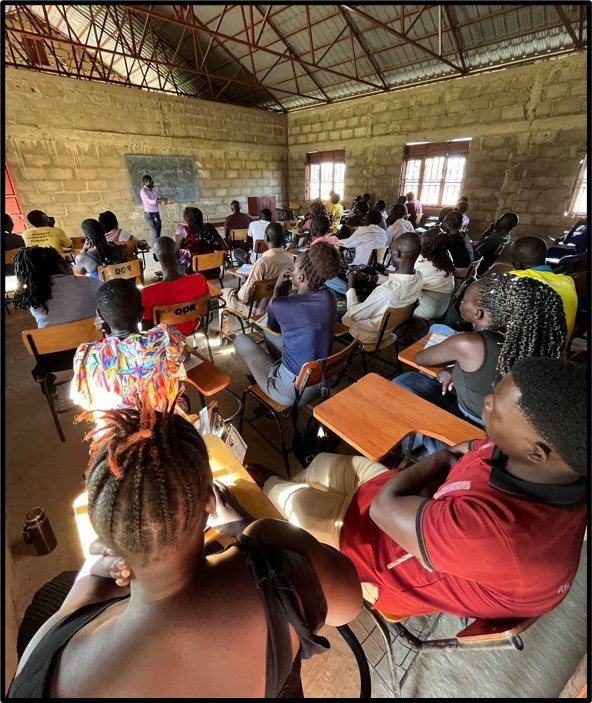A New Academic Year
It’s all go as usual in the Catholic University of South Sudan, Rumbek Campus. As we are approaching the end of one year, we are already in full swing getting organised for the next. The University is small but growing, and we are committed to seeing it flourish. Earlier this month, we launched a promotion programme for our new intake. We arranged a series of Facebook ads, printed flyers, put posters up around town, made Church announcements, and hosted two radio talk shows with our students.
Without a doubt, our students are our best adverts and promotors. Many of our new applicants have come through their personal recommendation. Their collaboration is essential and invaluable. However, we are faced with two significant challenges right now. The first is that the basic educational attainment level remains low. There is still a great deal of investment needed in primary and secondary education. According to the UN, South Sudan has the lowest expected school attendance in the world at just 5.6 years on average. This is why the work of the University in training professional, qualified teachers is so imperative. In addition, there has been significant inflation since the beginning of the year, reaching 320% since January. This means that finding money for University fees is especially difficult. To this end, we have worked to make them as low as possible and continue to offer a partial scholarship to women. For many, it is still not enough.

Fostering Body and Mind
It is not enough to just educate our students, we also need to attend to their complete wellbeing. Here, that means addressing issues like Hepatitis B. Seventy percent of all new global infections of viral hepatitis B and C occur in sub-Saharan Africa due to insufficient interventions, and the rate in South Sudan is a real problem. Hepatitis mortality remains high due to low treatment coverage. To this end, we have been working with the Mary Ward Primary Health Care Centre to test and vaccinate all of our students and staff who wish to take part. Those who are found to be Hep. B carriers are referred onwards for further treatment. Three out of four students and staff have already received their first dose, with second due later this month, and the third in September.

Get that Job!
As mentioned already, the South Sudanese economy is struggling and opportunities for employment are few and far between. Any time there is a job posting, the response is immediate and overwhelming, with many not even being shortlisted, let alone interviewed! To support our students, we arranged a workshop on interview technique with a member of Caritas, one of the largest organisations working in South Sudan. He worked with them on the essentials of best practice, good preparation, effective communication, and strong presentation. The attendance by students was enthusiastic, with standing room only for late comers. If given half the chance, they have the drive and creativity to really shape and change the economy and their community for the better. Such sustainable economic development by South Sudanese themselves is at the heart of our vision for the University.

Full House
This week our end-of-year exams began and will continue until the end of the month. Around the campus, student study groups are running as they prepare for tests in managerial accounting, African literature, computer literacy, entrepreneurship and innovation, economics, and ethics. All our first and second years sat my Church history exam yesterday and the stack of their uncorrected scripts are staring at me balefully from across the office. It’s perhaps the only aspect of lecturing I do not enjoy… to put it mildly!
While the exams continue, we are also welcoming our new first-year students. They will begin their bridging course tomorrow, which is comprised of eight weeks of intensive maths and English to help them as they start their third-level studies. All going well, they will be ready to begin their first courses by the middle of October.
Nhialic ke yin (God bless you as they say here),
Fr Alan
Director,
CUSS Rumbek
Read more from Fr Alan’s missionary journey in South Sudan:
- Looking for a Sign on the Way to South Sudan
- Building a Better Future in South Sudan
- Christmas Greetings from Fr Alan in South Sudan
- A Cup of Sugar and Maybe a Goat
- Mock Exams and Real Life in South Sudan
- As Easy as Baking a Cake
- Holy Week on the Move
- Three Arrivals and a Party
- Celebrating the Missionary Life
- Seeds of Hope
- Young People Fighting COVID-19 in Rumbek
- Ticket to Ride
- Lions, Snakes, and the World’s Deadliest Predator
- Vaccine Status: Denied
- Christmas in South Sudan
- A Bigger Shovel
- A Week in the Life of Loreto – Bishops, graduations, an ambassador, and the Pope
- Sowing Seeds
- A visit from the MSC Superior General
- Advent
- Do They Know It’s Christmas Time?
- The Papal Visit
- Life Goes On
- Give Peace A Chance
- The Surprising Grace of Hospitality: Part 1
- Everyone is included, The Surprising Grace of Hospitality: Part 2
- Highs and Lows in South Sudan
- Those Who Can, Teach
- Holy Week in a Heatwave
- Endings and Beginnings